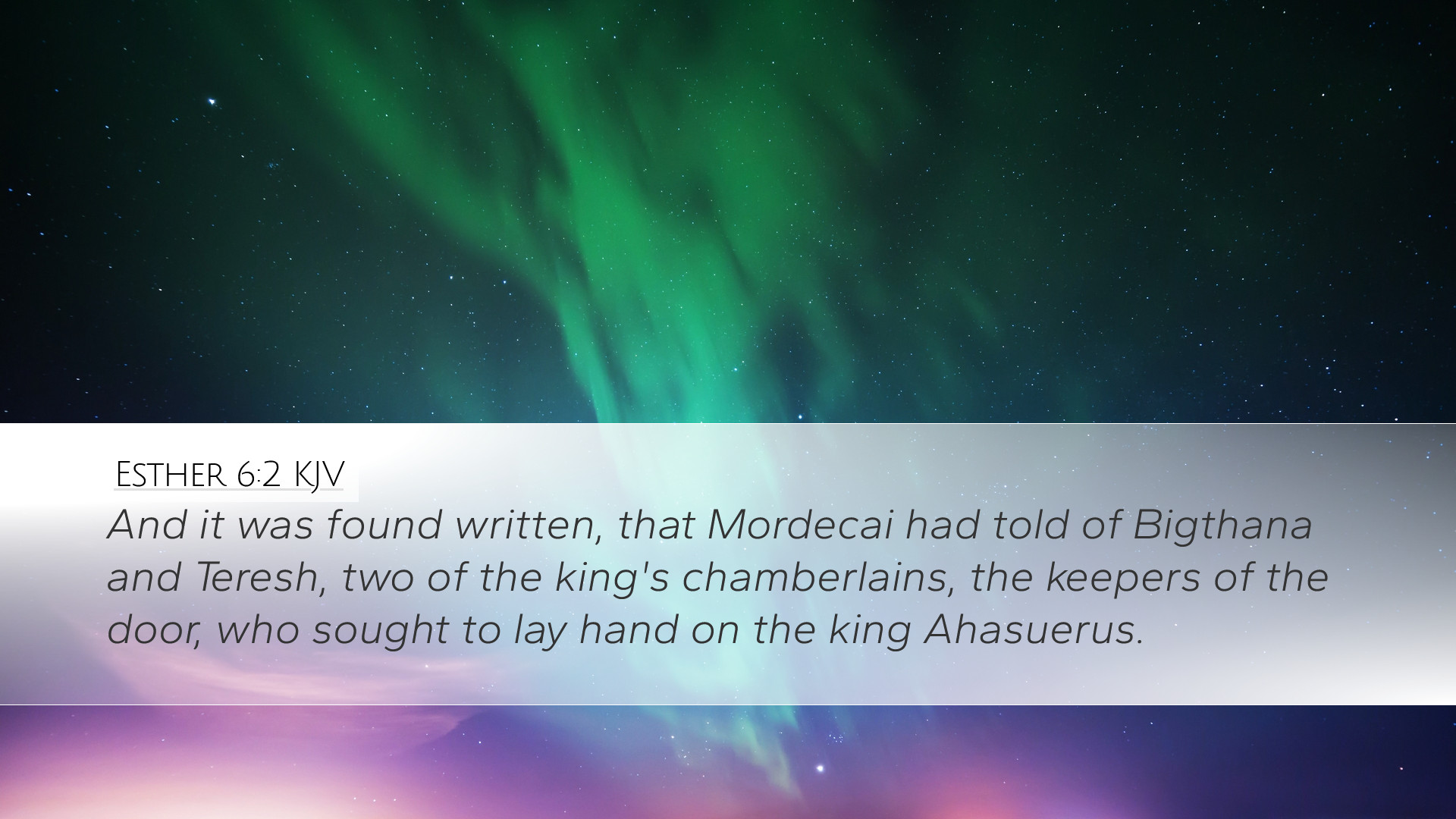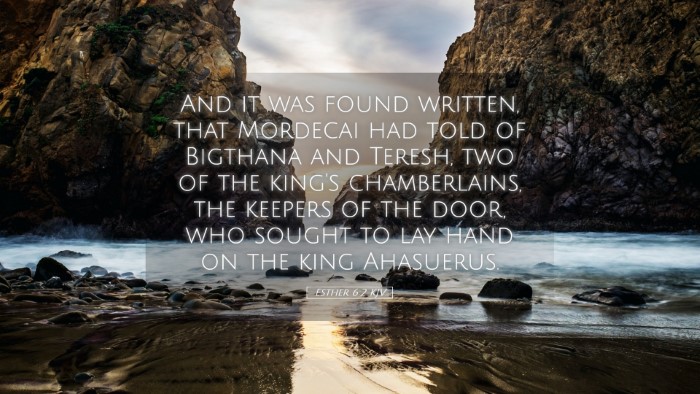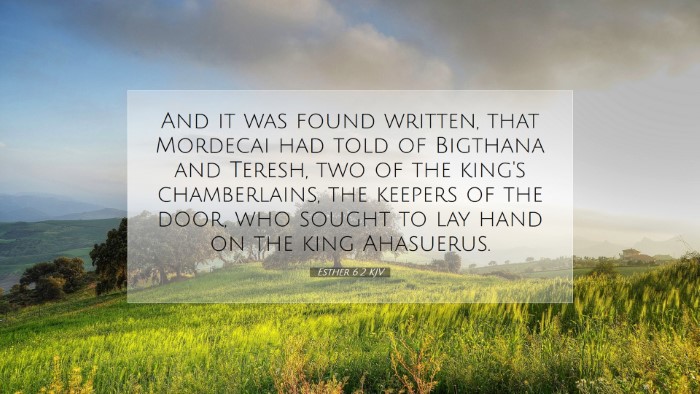Old Testament
Genesis Exodus Leviticus Numbers Deuteronomy Joshua Judges Ruth 1 Samuel 2 Samuel 1 Kings 2 Kings 1 Chronicles 2 Chronicles Ezra Nehemiah Esther Job Psalms Proverbs Ecclesiastes Song of Solomon Isaiah Jeremiah Lamentations Ezekiel Daniel Hosea Joel Amos Obadiah Jonah Micah Nahum Habakkuk Zephaniah Haggai Zechariah MalachiEsther 6:2
Esther 6:2 KJV
And it was found written, that Mordecai had told of Bigthana and Teresh, two of the king's chamberlains, the keepers of the door, who sought to lay hand on the king Ahasuerus.
Esther 6:2 Bible Commentary
Commentary on Esther 6:2
Verse Reference: Esther 6:2 - "And it was found written that Mordecai had told of Bigthan and Teresh, two of the king's chamberlains, the keepers of the door, who sought to lay hand on the king Ahasuerus."
Introduction
This verse is pivotal within the context of the Book of Esther, encapsulating themes of justice, divine providence, and the ironic reversals common in biblical narratives. The mention of Mordecai's unrecognized loyalty comes at a crucial moment in the story and serves as a transitions that sets the stage for a series of dramatic events.
Exegesis of Esther 6:2
Historical Context
The historical backdrop of Esther provides vital insight into the meaning of this verse. King Ahasuerus, believed to be Xerxes I of Persia, ruled over a vast empire. The story unfolds in the royal court, characterized by intrigue and animosity, particularly between Haman and Mordecai.
Mordecai’s Actions
Mordecai plays a critical role in the narrative. His loyalty in exposing the conspiracy against the king illustrates a theme of righteousness that ultimately stands in contrast to the plans of Haman. According to Matthew Henry, Mordecai’s actions represent a model of faithfulness and duty that is often overlooked in the realm of public accolades.
The King's Record
The discovery of Mordecai’s deed in the royal chronicles emphasizes the significance of record-keeping in ancient empires, highlighting how nothing is lost to God. As Albert Barnes points out, this moment serves to remind believers that God’s providence governs the affairs of men, even in the mundane practice of a king's annals.
Importance of Remembrance
The act of remembering is central to this verse. Adam Clarke notes that the timing of this discovery coinciding with Haman’s plot to execute Mordecai illustrates a divine intervention that eclipses human machinations. God’s providence turns the tide, demonstrating that He is always at work, even when His hand is not immediately visible.
Theological Implications
This verse has profound implications for understanding God’s sovereignty and justice. It invites pastors, students, and theologians to reflect upon how God orchestrates events in the lives of His people:
- The Sovereignty of God: The hidden hand of God is at work, turning circumstances for the benefit of those who remain faithful.
- The Theme of Justice: The narrative direction highlights that loyalty to authority is rewarded, stressing the moral responsibilities of individuals within societal structures.
- Divine Timing: The coincidental timing of Mordecai's actions surfacing in the royal records serves as a reminder that God's timeline often differs from human expectations.
Reflection for Today's Believers
For modern readers, this verse encourages a posture of faithfulness in obscurity. Matthew Henry emphasizes that while recognition may not always come in this life, faithfulness will always be acknowledged by God in due time. This truth can inspire believers to maintain integrity in their personal and public lives, trusting in God’s ultimate justice.
Pastoral Application: When preaching on this verse, pastors can elucidate the importance of remembering the good deeds of others and how God honors faithfulness. It can serve as a caution against bitterness when recognition is absent and an encouragement to foster a faith that expects God’s intervention.
Conclusion
Esther 6:2 encapsulates rich theological themes and offers practical wisdom for believers across generations. The text invites readers to engage with God's providence and the moral implications of one's actions, reminding all of the eternal principle that God sees and rewards faithfulness, often in the most unexpected ways.


